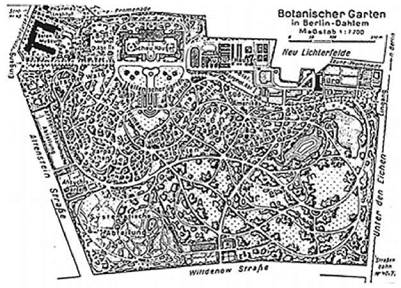The word ‘Oekologie’ was coined by Ernst Haeckel (1834-1919) in his Generelle Morphologie (1866). A scientist and later politician, he rejected religion with its traditional mind-body split and replaced this with a holistic view of the world, a belief that the real world could only be properly understood ‘by experience and pure reason’. This he referred to as Monism, which became a political movement. This is the context in which he conceived the word ‘oekology’, as the science of relations between organisms and their environment. It looked at organisms in context, their lifecycle, their environment and their place in the cycle of energy use. The word had overtones of the Greek word ‘oekonomie’; ‘oekos’ used by Aristotle to mean the proper functioning of a household unit, which was further developed by the Monists.5
Whilst it signifies a shift to a contextual, holistic biology, Haeckel did not fully develop ecology, which was carried out especially by plant geographers, emerging as a distinct science during the 1890s. In 1896, Oscar Drude of the Dresden Botanical Gardens published Deutschlands Pflanzengeographie, a plant geography of Germany, which refined the Humboldtian approach and showed how local factors, such as hills and rivers, combined with the overall climate of a region to determine the actual distribution of plants. The relative abundance of each species in an area was depicted with a ranking system, ranging from ‘social’ to ‘scarce’ (Bowler 1992:370). Another group of scientists saw physiology as a starting point for ecology. The interaction between the plant as a living organism and its environment determined whether or not a particular species could live in a certain area. Different levels of moisture, heat, light, etc. further
|
|
2.4
In 1897 the new botanical garden in Berlin-Dahlem was arranged according to plant geography,
supervised by Adolf Engler and Ignatz Urban
affected whether or not a species flourished. Whilst some of this was well known, in the 1890s the field of study was further extended to include how plants coped with different environmental factors. This was greatly stimulated by research in exotic locations, and particularly the Buitenzorg botanical laboratory in Java, the studies of which were quoted in landscape treatises as early as 1860.6
The Danish plant physiologist Eugenius Warming was particularly influential with his book entitled Oecology of Plants: an Introduction to the Study of Plant Communities (1909), which was the first attempt to publish ‘on Oecological Plant-geography’ (Warming 1909:3). The ecological approach was developed as an alternative to both pure physiology and the sterile emphasis on classification of many field naturalists. He introduced the term ‘community’, and communities as ‘the essential foundations of oecological phytogeography’ which were linked together through various interactions, such as symbiosis and parasitism (Warming 1909:91).
In both the USA and Great Britain, Warming’s approach influenced pioneering plant ecologists. In his study of changing vegetation along the shores of Lake Michigan, Henry Chandler Cowles of the University of Chicago argued that local factors, such as the lake, influenced vegetation cover. In Lincoln, Nebraska professor Charles Edwin Bessey of the State University, concerned with conservation, intended to study the grasslands of the prairie before they were completely ploughed up. Two of his students, Frederic E. Clements and Roscoe Pound, inspired by Drude’s book, published Phyto-geography of Nebraska (1898), which became a standard text for American botany, whilst Clements’ Research Methods in Ecology (1905) was the first textbook to describe a new method of surveying techniques used for this survey, by using small quadrats and surveying every plant within that (Bowler 1992:373).
In Britain, the new ecology was championed by Arthur G. Tansley, who, in 1904, had set up a Committee for the Survey and Study of British Vegetation, which later published Types of British Vegetation (1911). The first society devoted to ecology was the British Ecological Society, founded in 1913 (Bowler 1992:377). This limited historical overview shows how a new science evolved and became more complicated and involved additional aspects which were considered in time, acquiring more appropriate methodologies and terminology along the way.




